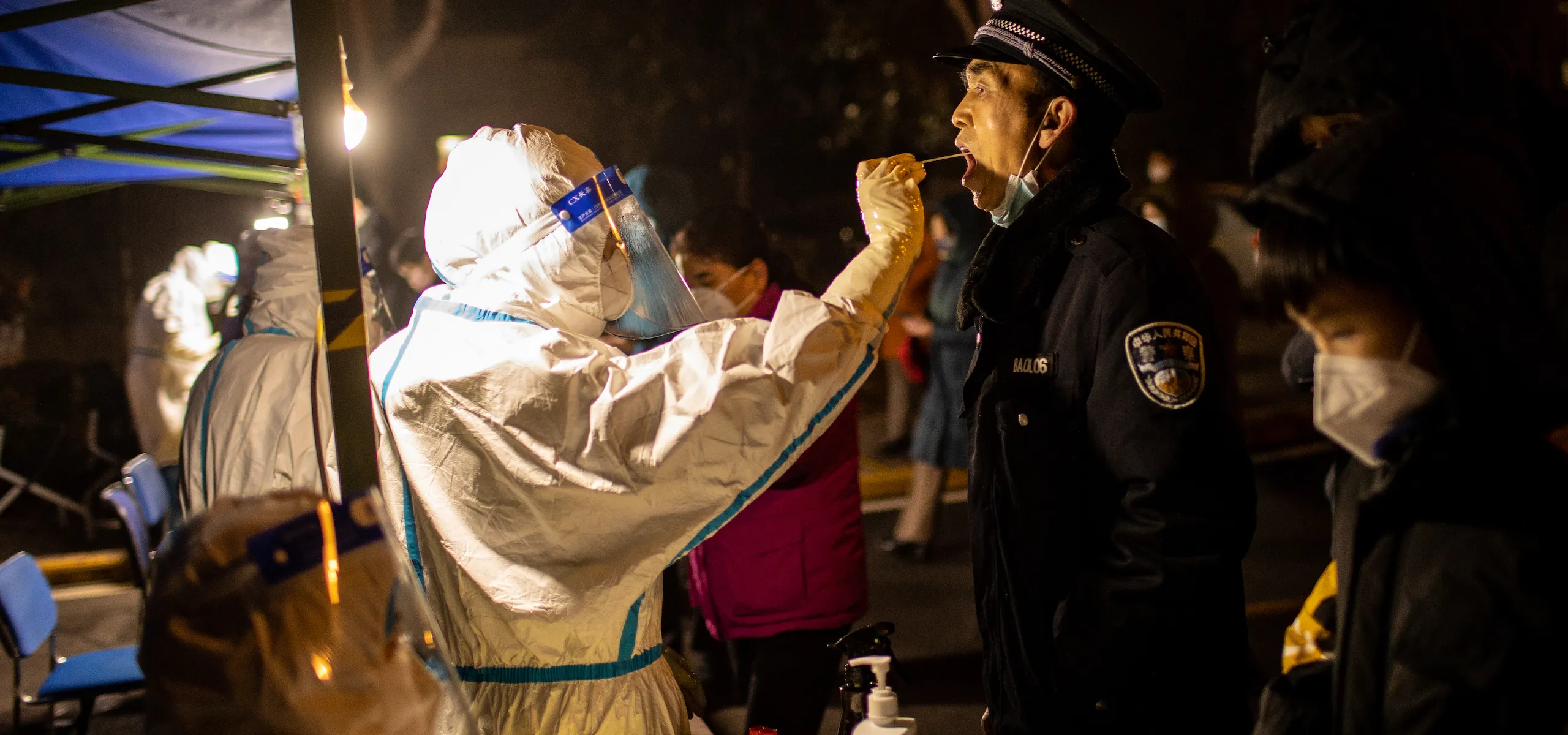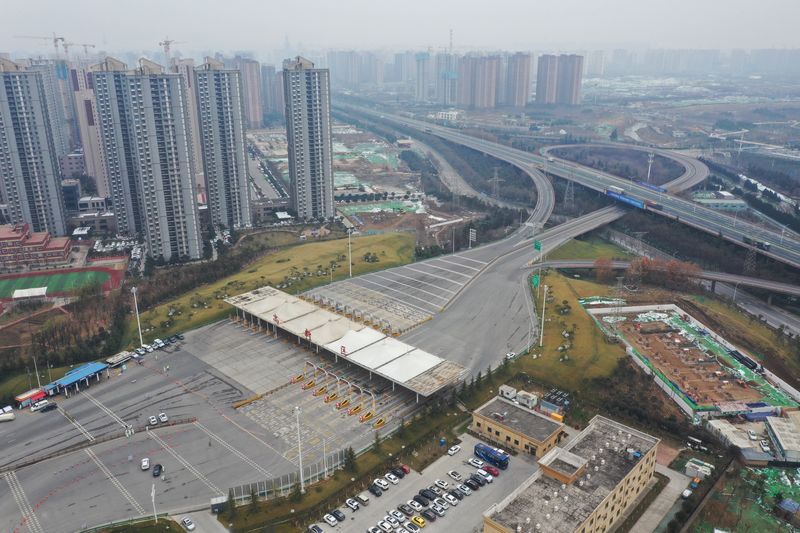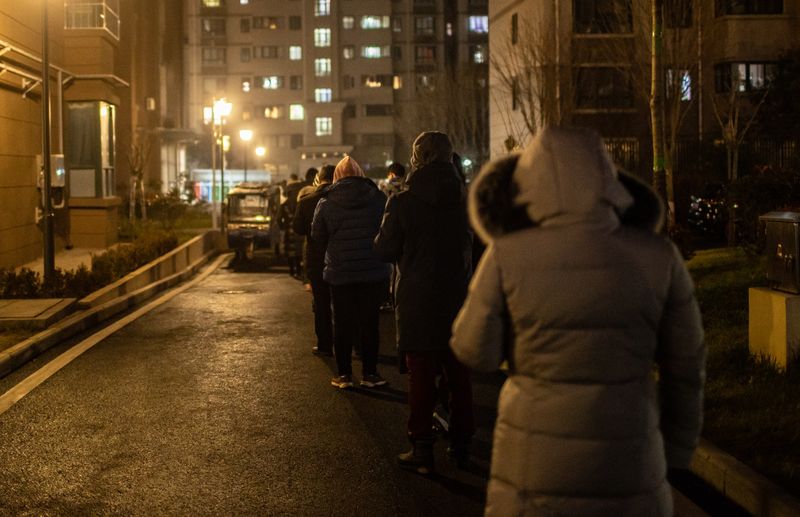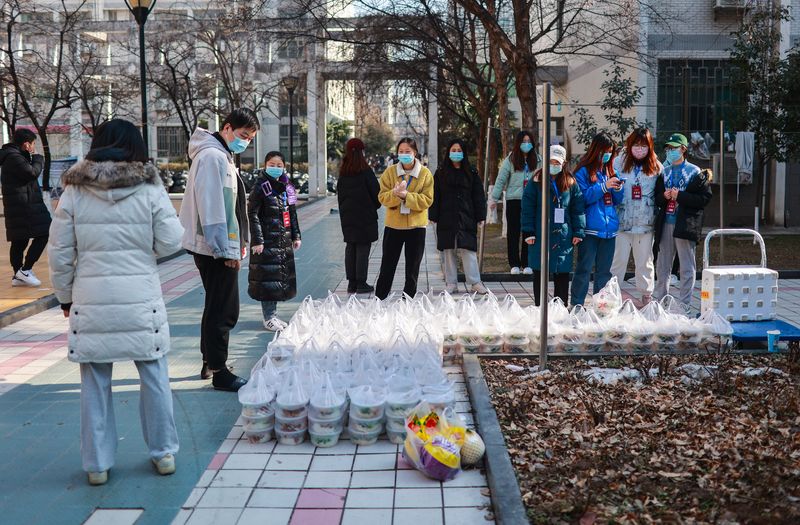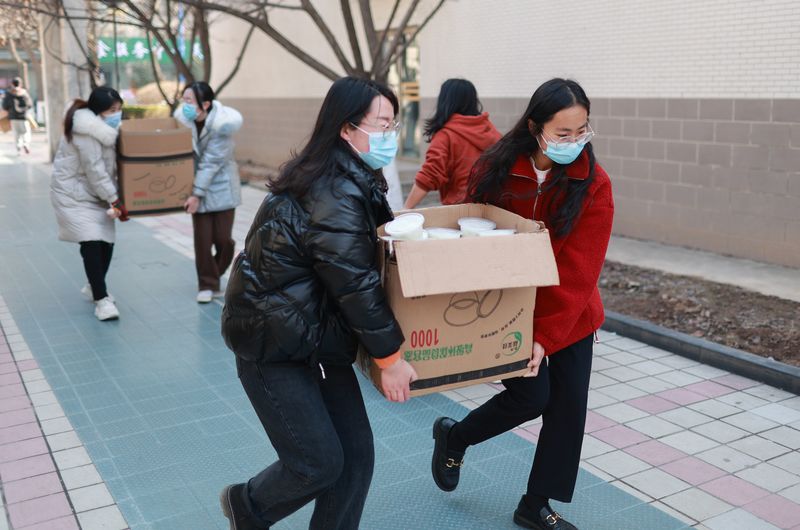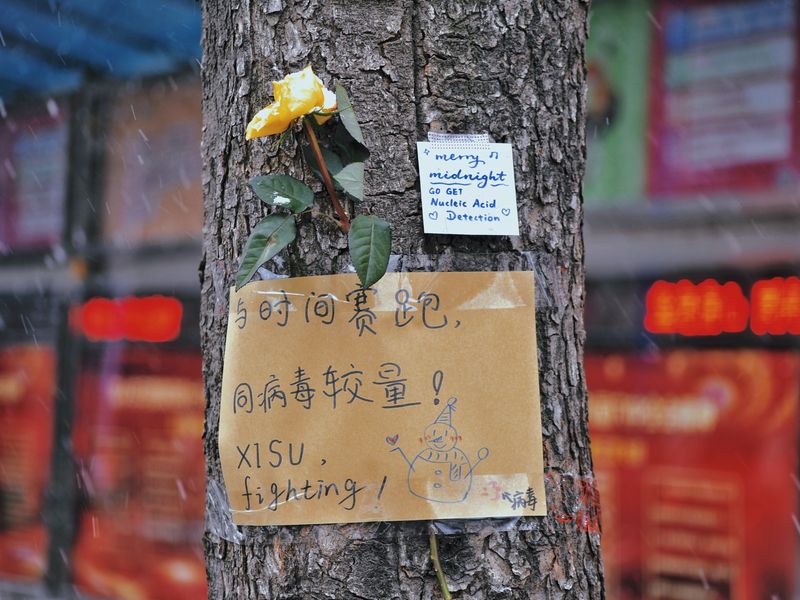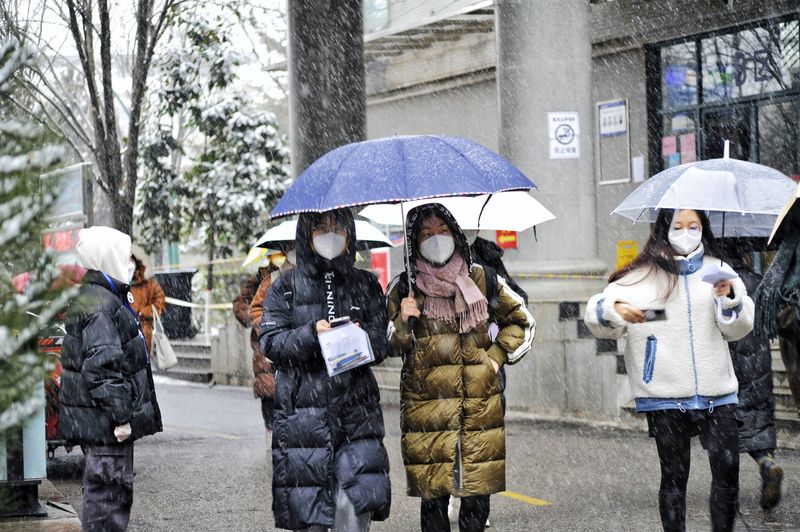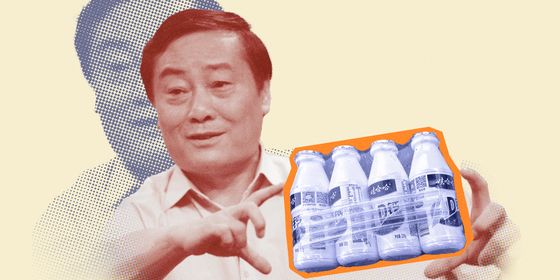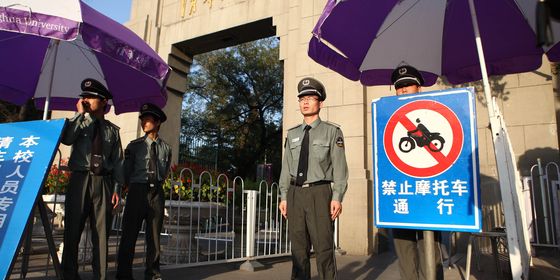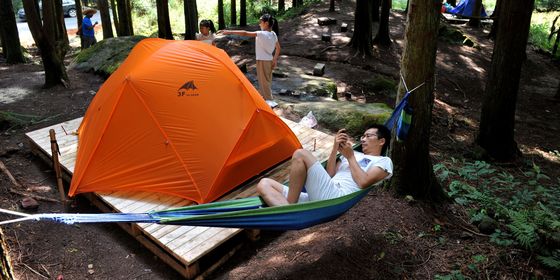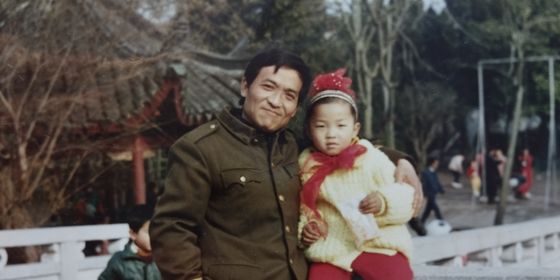The first-hand accounts of those living at the center of China’s worst Covid-19 outbreak since Wuhan in 2020
Ms. Liu, teacher at a primary school in Gaoxin district
In my school, the pandemic prevention and control work has become routine. When the first confirmed case was reported in Xi’an [on December 9], the school emphasized again that all students, teachers, and parents must wear facial masks, and parents must pick up their kids in a designated area outside the school. A parents’ meeting and a cross-country race were cancelled.
It was at midnight of December 20 when we got the notice to suspend classes, and the teachers got out of bed immediately to inform the parents. At 8:30 the next morning, online classes began. Only teachers came to the school campus that day, and the weather was beautiful. I walked around the school feeling very sad, because the pandemic felt endless and the campus used to be so alive.
Many people think teachers get a holiday when in-person classes are suspended, but that’s not really true. We’re still doing online classes to this day. The teachers seem to be busier than before, because we need to take nucleic acid tests, report our student’s temperatures everyday, and do a lot of extra work. One colleague said to me after the pandemic got under control, the first thing she would do is go to the hospital, because there’s a tingling in her ear that’s getting worse and worse, but she’s too busy to go get it checked out.
On the day of the Winter Solstice, I took my child to take a nucleic test. I waited in line for five hours. I’d never waited for so long in line for anything before. I even got into an argument with a queue-cutter. But a student from my school was also at that site, and said hello to me, and I felt so embarrassed.
There were eight confirmed cases in my community, so we’ve been locked down since December 23. The community distributed supplies and friends also sent some stuff to us. During the lockdown, my child’s milk powder and disposable diapers ran out. But he was nearly three years old, so it was a chance for him to change some habits. He did pretty well.
On the early morning of the New Year, a friend of mine posted a call for help in her Wechat Moments. Her baby got Kawasaki disease and had a high fever, but they were rejected by several hospitals because their community was listed as a “medium risk area.” I was super worried. Fortunately, they were eventually accepted by a hospital and the baby was okay. This was the first good news in the new year.
I hope that in the future, the government can learn from this outbreak, and display more humanitarian management. I’ve read lots of heartbreaking news on the internet. There’s also news with “positive energy,” such as friends of mine who became volunteers and residents who helped each other out. I can’t speak for others. I can only say I am lucky that I didn’t starve or suffer from severe shortage of basic goods.
Cheng Yingwen, teacher at Xi’an International Studies University
On December 9, [2021], the first confirmed case in Xi’an of this round was reported. I saw the news, but didn’t get further information. Until December 16, when my son’s primary school announced to suspend classes—then I realized the problem could be serious. But I was busy with work at that time, so I did nothing special to prepare.
During that period of time, the policies changed very fast. On December 22, my housing community said people were allowed to go outside for shopping only once every two days, and I got a card showing I was allowed to enter and exit my complex. However, in the early morning of December 23, the “lockdown” began. None of us knew whether we could go out even with our cards. There was no clear rule about that.
I went to the small supermarket in our residential complex, and found there was already a long line. No one was panicking, we just felt we had better buy a week or two worth of essentials. I estimated I’d have to queue for an hour, so I gave up.
I saw the doorman for our apartment complex stopping people leaving. Since there was a confirmed case in a residential community near my school, the doorman said we’d better not go outside. If we needed anything, we could purchase it in the supermarket inside the community. Most people didn’t insist on going out. Since December 21, the community organized 12 or 13 rounds of Covid-19 tests for residents.
Later, clear policies were published—people were officially not allowed to leave the community. I couldn’t remember which day it was. I was busy with supervising the students’ examinations those days.
During the outbreak, the national postgraduate entrance examination was held. Some people had suggested canceling the exam, because it’s risky to hold the exam at that time. But as a teacher, I understand and support the decision to hold the exam as scheduled, because we shouldn’t delay the futures of those young people. The exam invigilators had been hired in advance, but some of them couldn’t leave their homes now, so the supervisor team needed to be re-organized. And those who were to supervise exams at special sites—where the examinees were suspected cases or had “yellow” health codes [indicating they had entered a “medium” or “high risk” area]—would be quarantined at home for 14 days afterward. Still, within five minutes, many Party members in our department volunteered to supervise the exams.
After the exam, the university went into closed management. Students were no longer allowed to leave their dorms. There are nearly 20,000 students in my school. The cafeteria made their meals and packed them up to be delivered to the dorms. I volunteered to deliver the meals once, and took some photos.
Students couldn’t go to the classrooms, library, gymnasium, playground, or even the public bathroom—it was not easy. But their basic needs could be guaranteed. Our department even provided free sanitary pads for all the female students.
The day after I supervised the exam, one examinee was diagnosed with Covid-19. All the supervisors were investigated, but it turned out I had had no contact with him. On December 27, a confirmed case was reported to have showed up in our campus. But after investigation, it was discovered they had actually just passed by the school’s gate. There were many times I felt the virus was very close, but though we were scared, we weren’t harmed.
There are many media reports on this outbreak in Xi’an. Some are positive, some are negative. It’s normal. Xi’an is a city with 13 million people, there must be some problems. But the internet tends to amplify the problems. Just like “the sanitary pad” event [when a woman under lockdown was reduced to tears as she begged medical staff for sanitary pads]—many people criticized Xi’an for a lack of preparation just because one person’s need for sanitary pads was not met. But things like our school providing free pads for female students were not reported.
Of course, I support people reflecting on problems through the internet. But the news should be accurate and objective. I’m a social scientist. When we study a phenomenon and conduct a survey by questionnaire, the sample size should be large enough, or it can’t represent the entirety of the research findings. If we want to know whether Xi’an did a good job or not, we need to listen to the majority of Xi’an people.
Zhen Yan (pseudonym), 32, staff at an epidemic prevention office in a suburban district of Xi’an
It is my job to write reports and send out policy documents from the top to the relevant grassroots departments, mainly to do with daily new infection numbers and provision of supplies. This morning I did a report on yesterday’s nucleic acid tests. Because we are doing citywide testing, that means workers need to go into the neighborhood and find people who live alone, people who don’t usually leave the house, or even homeless people in order to test them and report their situation to the city. I compile the information the workers give me and send it to my supervisors.
Frontline disease-prevention workers handle specific tasks. They’re responsible for preventing the spread of the virus, whereas I’m responsible for connecting people with the help they need. We serve not just individuals but hundreds of thousands of people—getting them the supplies and medical attention that they need while also making sure the situation is under control. While the frontline workers are solving problems, we are behind them, helping to influence policy on how to get people treatment. For example, we need to know how many pregnant women are in this area, when they are due, and how to serve them. There are also elderly and people with chronic diseases whom we have to pay attention to.
Because disease-prevention requires coordination from many different government departments and many geographic districts, it’s undeniable that some parts haven’t run as smoothly as others. And at the local level, the people who enforce the policies are averse to risk, so they’d rather be overly strict. When they’re not sure if it’s time to relax yet, they’d rather be safe than sorry. In the long term, I think policy enforcement at the local level needs improvement.
My biggest challenge right now is that I’m tired. The second challenge is that you’re constantly worried about loopholes whenever you make any policy. For example, right now we’re responsible for making sure people have the supplies they need, but we also need to restrict private vehicles from driving on the streets. If a business says they have no freight vehicles, and you give them a permit to use a private vehicle [to deliver supplies], how can you make sure they don’t go driving around and use the vehicle for other ends? Alternatively, there was a man in our district who said he needed to go to Gansu province to take care of his sick parents, but this wasn’t allowed under the policy. His parents’ village had to issue him a permit to visit, and we were responsible for getting him a nucleic acid test.
I’ve been on the job for 20 days, since December 30. My team works from 8 a.m. to midnight every day. Back when new infection rates were at their highest, I slept in the office. After the situation started improving, I got to go home and sleep after midnight. If you see [in the news] a problem that came up from the grassroots and got resolved within a day or two, that means some epidemic-prevention workers stayed up all night to work on it.
I think many aspects of how Xi’an handled its lockdown deserves criticism. There’s nothing wrong with criticism. It’s normal that some issues, like the woman who miscarried her infant [because the hospital would not admit her without a negative nucleic acid test], would outrage society’s morals. When you try to make improvements after something like this happens, it should not be with the goal of influencing the discourse [in a more positive direction], but what’s key is that you do your job right and help people resolve their difficulties. I think once the pandemic is truly under control, when people’s lives go back to normal, that’s when we can go back to normal too. Because the best job that the government can do is to not let people notice that it’s doing its job.
Lin Hua (pseudonym), college senior who took the postgraduate entrance examination this year in Shaanxi province
My heart plummeted on December 16, when the hotel I booked in Xi’an for the postgraduate entrance exam called me and said they had to cancel my booking because they’d become a quarantine site. By December 20, no trains were allowed to stop in Xi’an, and I realized I couldn’t travel to the city to take the exam.
The next day, I began calling the provincial testing authorities, my testing site, and the district epidemic-prevention center to ask whether I could still take the exam, where I could take it, and how. I must have called around 50 times in three days, but the line was always busy. All I could do was wait. By the afternoon of December 23, my classmates and I started to gather our study materials for the exam, we didn’t know whether or not the exams would still take place two days later. We were so disappointed that we could not help sobbing as we collected our papers.
At 3:07 a.m. on the 23rd, the provincial authorities announced that we could apply to transfer to another examination site. But the site had to be authorized to give the postgraduate entrance exam, and our city didn’t have any of those. We called our city’s exam authorities, who denied our application to set up a testing site and asked us where we heard the news that we could transfer. Hours later, our university eventually notified us that we could take the exam on our campus.
During those days before the exam, what concerned us most was not how we could better prepare for the exam but whether or not we could take it and how we could get to the test site. Under this kind of pressure, one of my classmates dropped out of the examination.
On the 25th, we had the exam in our school. During each exam none of the students handed in their test papers early. Teachers wore masks and gloves as our supervisors. About 5,000 candidates had their exam at our school. Some of the candidates had come from outside of our school, so after finishing the exam we had another nucleic acid test.
I’m glad I was finally able to take the exam, even if there were problems. I was finally able to have something to show for a year of hard work. Another heartwarming thing is that on the night of the 23rd, I received a call from my local government office asking me whether I had a place to take the exam, and collecting my information. It made me feel everyone was trying to help me take the exam and none of us were forgotten.
Zhang Zepeng, final year computer student at Shaanxi Normal University and resident of Beilin county, Xi’an
I was at my university the afternoon of December 22 when the local government announced the lockdown. As someone who is not that well-informed about the news, I was taking a casual stroll to the campus store after dinner, and there was a long line from the cash register to the back of the store, which wound itself several times around the room. The students were stocking up on stuff like crazy. My friend told me there would be a lockdown in the whole city, and then I went home that day.
On the 23rd, when I came back to the university, I was told I couldn’t get back onto campus, so I stayed at home to prepare for my upcoming postgraduate entrance examination. It had been a very rough week for the examinees, because the policies changed all the time. Later we were told that we needed negative nucleic acid tests on both the 23rd and the 24th in order to take the exam on the 25th, but the city stopped offering free testing on the 23rd. The students then had to find hospitals on their own to do the test on the 24th, and I ran around several hospitals and waited for quite a long time to get mine.
I was applying for the philosophy major in Xi’an Jiaotong University, and I told myself to stay calm, even when the outside world became a total mess. On examination day, they cordoned off the testing areas on the university campus so examinees were separated from the other students and teachers. The students were told to bring their own lunch, and asked to stay in the hallway outside the library during the lunch break, which was extremely crowded. It was snowing that day and they didn’t have places to buy food. I borrowed a student card from another student at that university to buy some warm food in their canteen. I think lots of the students were negatively influenced by the conditions that day.
Since the examination ended, I’ve been staying with my family. Although our community is at the center of the pandemic, we are allowed to leave our apartment. I exercise on the stairs. I take the elevator to the ground floor and climb back up, over and over again. There are stores within our residential community, so we’ve never suffered from the shortages of vegetables and food like other people have complained about online. Maybe it’s because we live in the older part of the town and all the neighbors have known each other for several decades. The officials, the security, and the residents have all been helpful to each other over the last two weeks. There are security guards standing outside of our community at all times to prevent us from going out, as well as to help those who are in need.
To those people who have been complaining online, I think their grievances are real. Lots of the regulations have become very dogmatic. The lockdown was so sudden that they barely considered individuals’ basic needs. Unlike my community, where people grow up together and will try their best to solve your problems, the situation would be dreadful if the officials only did things based on the rules.





